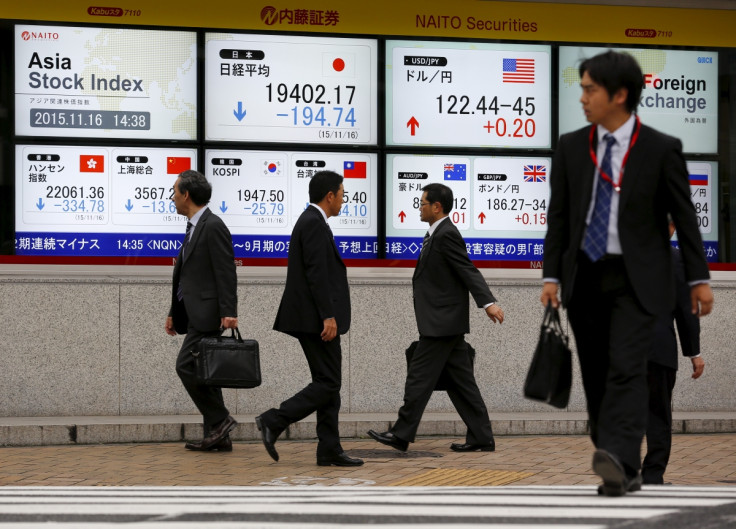Asian markets led by Nikkei slide as US dollar touches 18-month low against yen

While bourses in China and Hong Kong were closed on 2 May on account of Labour Day holiday, stock markets in the rest of the region were trading lower. The Japanese Nikkei 225 suffered the biggest fall. As of 5.53am GMT, this index was trading 3.45% lower at 16,090.47.
The decline in the Nikkei followed the US dollar touching a new 18-month low against the yen. Investors in the region seemed to be still disappointed with the decision taken by the Bank of Japan last week for not making any changes to its monetary policy. This hurt investor sentiment as they were expecting more stimulus measures to be introduced by Japan's central bank.
Stephen Innes, senior trader at OANDA, said: "While lingering disappointment from the Bank of Japan's inaction continues to weigh in Japanese markets, negative sentiment started filtering through to other global markets and this ripple effect should be closely monitored as the negative impact from waning global risk sentiment could add more fuel to an already overheated yen."
Indices in the rest of Asia traded as follows on 2 May at 6.01am GMT:
| Country | Index | Price | Up/Down | %Change |
| South Korea | KOSPI | 1,978.04 | Down | 0.81% |
| India | CNX Nifty | 7,791.10 | Down | 0.75% |
| Australia | S&P/ASX 200 | 5,239.00 | Down | 0.25% |
Meanwhile, last week (29 April), the Dow Jones Industrial Average closed at 17,773.64, down 0.32%, while the FTSE 100 closed lower by 1.27% at 6,241.89.
Amid commodities, oil prices declined after hitting 2016 highs on 29 April. Analysts opined that the recent rally came amid investors holding large positions while in reality there was still a huge inventory of oil stockpile. According to Reuters, oil output from Opec nations in the month of April rose to its maximum levels in recent history.
On 2 May, WTI crude oil was trading 0.87% lower at $45.52 (£31.15, €39.71) a barrel, while Brent was 1.08% lower at $46.86 a barrel at 6.16 am GMT.
© Copyright IBTimes 2025. All rights reserved.





















